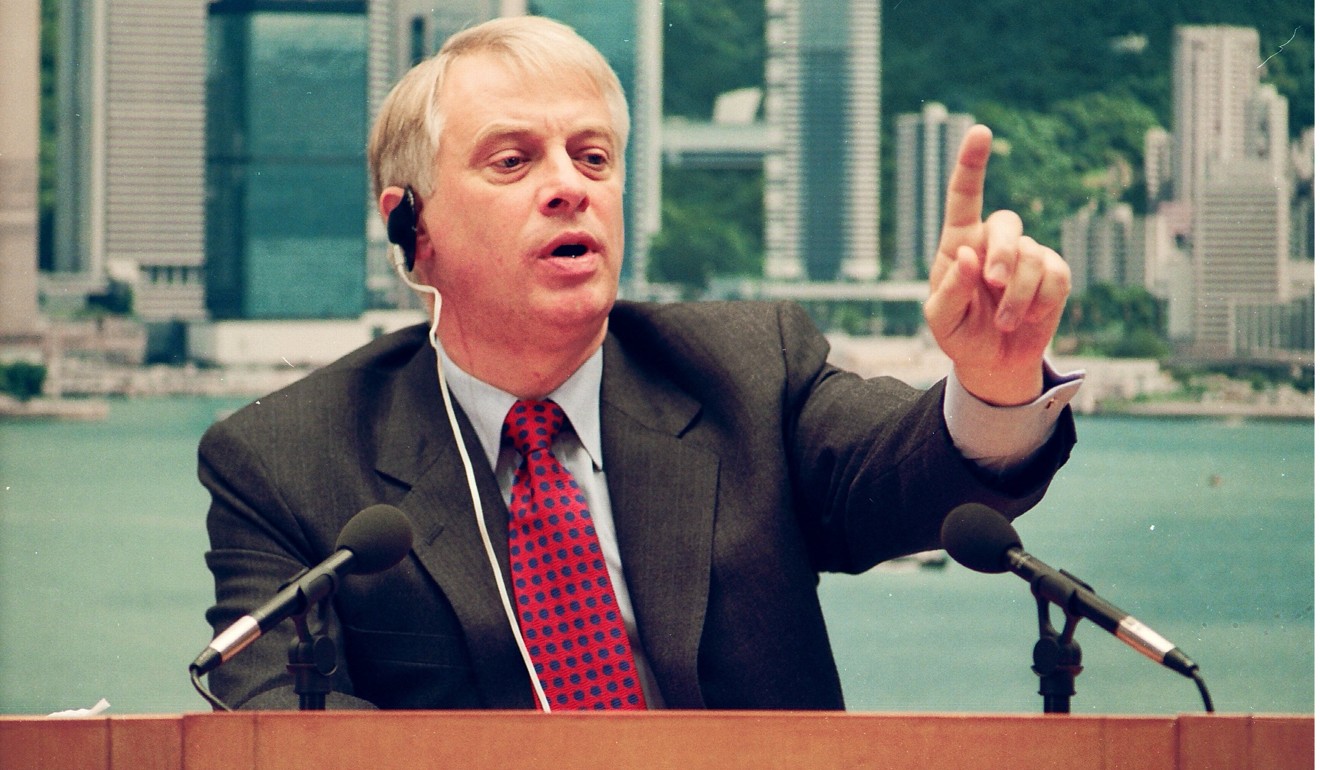
British government originally planned to give Hong Kong’s Legco a choice of reform proposals if talks with China broke down, archives show
- Frustration at the pace of negotiations with Beijing led John Major’s government to consider offering a second option more amenable to China
- The plan was scrapped in November 1993 after China became more receptive to reforms
The British government once planned to let the legislature of Hong Kong choose from both the more democratic electoral reform proposals put forward by the city’s last governor in 1992 and a revised version tabled during negotiations with China in 1993 if those talks failed, newly declassified files from London have revealed.
The plan was concluded at a British cabinet meeting on July 1, 1993, amid frustratingly slow negotiations with the Beijing government.
“If it proves impossible to reach an agreement with the Chinese, we should table the revised proposals and invite the Legislative Council to decide whether they or the governor’s original proposals should form the basis for legislation, or without offering our own amendments, leave it to Legco to decide how far the governor’s original proposals should be revised,” the minutes of the meeting quoted an unspecified official as saying.
Under governor Chris Patten’s electoral reform package, 2.7 million electors were to be given a vote in nine new functional constituencies in the 1995 Legco election. Ten lawmakers were to be drawn from elected representatives of district boards, which were renamed as district councils after 1997.
How George H.W. Bush honoured governor Sir Edward Youde, whose sudden death in Beijing shook Hong Kong
But the revised proposal put to China would have reduced the electorates for the nine new functional constituencies by two-thirds to 900,000, as six seats would have been based on Beijing’s ideas. And the 10 lawmakers would have been elected not only by district representatives, but also by functional constituency legislators, municipal council members, and rural leaders.
However, that plan was scrapped and replaced with a “two-stage approach” at another cabinet meeting on November 9, 1993.
The U-turn came as the Chinese government, for the first time since the talks began in April 1993, appeared to loosen up and display willingness to agree on part of the electoral reform package, which concerned mostly the district boards and municipal councils.
Eager to achieve agreement with China and wary of running out of time on tabling drafts to Legco for reforming the 1994 and 1995 elections, the British cabinet decided to break up the 1992 electoral reform proposals into two packages.
British Foreign Office was told to assess risk of Chinese takeover before 1997
Recommended by both Patten and assistant undersecretary for foreign and Commonwealth affairs Christopher Hum, the approach first sought an interim agreement with Beijing on democratising district boards and municipal council elections, and on the voting age and voting method issues for the Legco elections.
The second stage handled outstanding problems concerning the election committee, the functional constituencies and the criteria for Legco members to get on a “through train” arrangement, under which the members of Hong Kong’s last colonial Legco were to become members of the special administrative region’s first legislature.

The “advantage in splitting the draft legislation into two parts”, as seen by Patten, was that the first package was likely to have a “straightforward” or “probably unscathed” passage through Legco, depending on the agreement reached with China.
Meanwhile, it would have granted more time for the search for solutions to outstanding issues, according to a report prepared by Hum ahead of the cabinet meeting in November 1993.
David Wilson forced out as Hong Kong governor by British PM, files show
Patten and Hum had also urged then British prime minister John Major to write to Chinese Premier Li Peng “indicating the broad shape of an acceptable agreement on the remaining issues and proposing intensified negotiations” before the last two rounds of talks commenced.
However, at talks on November 19 and 20, following the British cabinet meeting and Major’s letter to Li, “the Chinese position hardened again”, and “the prospects for reaching a first-stage agreement in the time available now look bleak”, according to a summary sent to the prime minister’s office.
The talks officially broke down in the next round on November 26 and 27.

After discussion with Major, Patten decided to announce on December 2 at Legco that he would introduce draft legislation based on the first package before the Christmas recess.
“Where our two sides have reached a common view in the talks, the draft legislation will reflect that, as a mark of our sincere wish to continue cooperation with the Chinese side,” British foreign secretary Douglas Hurd wrote.
“I hope the Chinese side will not oppose it publicly,” Hurd added.
Patten won fight with civil service over how to deal with China, files show
Two bills, covering amendments on the elections of district organisations in 1994 and 1995, and amendments for the Legco elections in 1995, were tabled by Patten to the city’s legislature in December 1993 and March 1994 respectively.
Adopting most of the proposals made by Patten in 1992, both bills were passed in June 1994 with severe criticism from Beijing.
The proposals included the abolition of appointed seats in district organisations; lowering the voting age from 21 to 18 to expand the electorate from 3.7 million to 3.9 million; and adopting the single-seat, single-vote system for the election of district organisations and 20 directly elected Legco seats.

